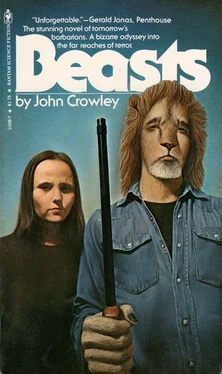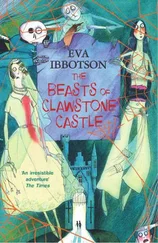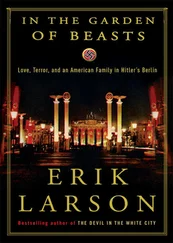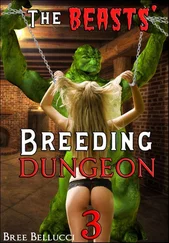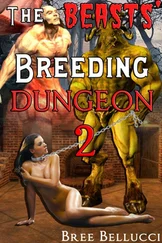It had taken centuries for the bonding of men and dogs to come about, for dogs to come to accept men as of the pack. In the city that bond was being unraveled in a mere decade.
It was fair that those species who had chosen to share city-man’s fate — dogs, cats, rats, roaches — should share in his tragedies too, and they always had; the dogs willingly, the cats with reproach, the rest blindly, starving with men, bombed with them, burned out with them, sacrificed to their famines and their sciences. But men had changed, quickly, far more quickly than their companion species could. The rats, who had so neatly matched man’s filthy habits and who counted on his laziness, had suddenly been done in by his wits, and had nearly perished utterly: only now, in the loosening of man’s hold over the world, forgotten in the mental strife that only man can engage in, the rats had begun to stage a small comeback: Sweets and his pack knew that, because they hunted them. Cats had been rigidly divided into two classes by the decline of the rat: sleek eunuchs who lived on the flesh of animals twenty times their own size, fattened for them and slaughtered and cut into dainty bits; and a larger class of their outcast cousins, who starved, froze, and were poisoned by the thousand.
Until men left the city entirely, of course, the roaches would flourish. But now, suddenly, that day seemed not far off.
Down Fifth from Harlem, the Renaissance fronts were stained and their windows blinded with sheets of steel or plywood. The park they had long regarded with calm possessiveness was rank and wild, its few attendants went armed with cattle-prods, and their chief duty was to guard the concrete playgrounds kept open during daylight hours for children who played glumly with their watchful nurses amid the tattooed seesaws and one-chain swings. Few people went into the wilder park north of the museums, where ivy had begun to strangle the aged trees with their quaint nameplates, and city stinkweed to crowd out their young; few, except at need, “We lost them in the park,” the provisional police would report after a street fight with one or another faction; lost them in the woods and rocky uplands where they hid, wounded sometimes, dying sometimes. The occasional police sweep through the park uncovered, usually, one dead or in hiding, and a number of scruffy, wary dogs, seen at a distance, never within rifle-range.
It was there that Sweets first saw Blondie: up beyond the museum, at the southern edge of her territory.
The open spaces around the museum were now a universal dog run, despite the police notices, since there were hardly any people who would go into the park without a dog. Sweets grew to know many, and feared some; dainty greyhounds who shied at squirrels, rigid Dobermans and touchy shepherds who knew only Attack and no other games, St. Bernards clumsy and rank. The dog run was a confusing, exhausting place, a palimpsest of claims all disputed. Sweets feared it and was excited by it; he strained at his leash, barking madly like a dumb puppy, when his lady Lucille first brought him there, and then when she unchained him he stood stock still, unable to leave her, assaulted with odors.
Whatever sense Sweets and the rest could make of the place was aborted by the people. Sweets should have had the weimaraner bitch; she was in flaming heat and shouldn’t have been brought there, but since she had been, why had his first triumph, his first, over others larger and meaner than himself, been taken from him? The bitch chose him. He had never had a female, and his heart was great; he would have killed for her, and she knew it. And then the big-booted man had come up and kicked them away, and left Sweets in his triumph unrelieved.
Exalted, buzzing with power that seemed to spring from his loins, he pranced away, hearing Lucille far away calling his name. They all faded behind him, and he was filled with his own smell only; he lowered his nose to the ground in a condescending way but nothing entered. He came to the top of the ridge, and in the bushes there Blondie rose up to meet him. He raised his head, not choosing to bark, feeling unapproachable, potent, huge, and she, though not in heat, acknowledged it. Bigger than he, she knew him to be bigger just then. She quietly, admiringly, tasted his air. And then lay down again to the nap he had roused her from, her tail making a soft thump-thump-thump on the littered ground.
And now Blondie is dead; murdered, he alone of them understands, by men’s meat; and Lucille is gone, taken away unresisting in the night by big men in fear-smelling overcoats. Sweets, left locked in the bedroom, should have starved but did not, though Lucille in the relocation center wept to think of it; he knew well enough by then about doors and locks, and though his teeth and nails weren’t made for it he opened the bedroom door, and stood in the ransacked apartment through whose open door came in unwonted night airs and odors.
He came to the park because there was nowhere else for him to go. If it hadn’t been for Blondie, he would have starved that first winter, because he would no longer go near men, would never again look to them for food, or help, or any comfort, What the wild ones knew as their birthright, being born without men, he had as a gift of that eidetic memory men had given him by accident: he knew men were no longer of the pack. If he could he would lead his pack, all of them, away from men’s places, somewhere other, though he had knowledge of such a place only as a saint has knowledge of heaven. He imagined it vaguely as a park without walls, without boundaries, without, most of all, men.
If he could…
When he rushed Duke, the Doberman didn’t back away, though he himself didn’t charge. His narrow, black face was open, his armed mouth ready. Duke had killed a man once, or helped to do it, when he was a guard dog in a jewelry store; the man’s gun had shot away one of the ears the agency had so carefully docked when he was a pup. He feared nothing but noises and Blondie. He turned to keep facing Sweets as Sweets circled him in tense dashes, keeping the mouth facing him, wanting desperately to hurt him, yet unable to attack, which was Sweets’s right.
When at last the courage within Sweets boiled over and he did attack, he was seized breathless by Duke’s ferocity. They fought mouth to mouth, and Sweets tasted blood instantly, though he couldn’t feel his cut lips and cheeks. They fought in a series of falls, like wrestlers, falls that lasted seconds: when Duke won a fall, Sweets would halt, paralyzed, offering his throat in surrender to Duke’s wanting teeth, inches from his jugular. Then Duke would relent, minutely, and again they would be a blur of muscle and a guttural snarl, and Duke would be forced to freeze. Duke was the stronger: his nervous strength, teased up within him by his agency training, seemed ceaseless, and Sweets began helplessly — because he too had been doctored by men — to imagine defeat.
Then four sticks of dynamite took apart a temporary police headquarters on Columbus Avenue, and the sound struck them like a hand.
Duke twisted away, snapping his head in terror, seeking the sound to bite it. Sweets, surprised but not frightened, attacked again, drove Duke to yield; Duke, maddened, tried to flee, was made to yield again, and then lay still beneath Sweets, all surrender.
Sweets let him rise. He had to. He felt, irresistibly, an urge to urinate; and when he walked away to do so, Duke fled. Not far; from behind green benches along a walk he barked, letting Sweets know he was still there, still mean. Still of the pack. Only not leader.
Sweets, heart drumming, one leg numb, his lips beginning to burn in the cold air, looked around his kingdom. The others were keeping far from him; they were dim blurs to his colorless vision. He was alone.
Читать дальше
